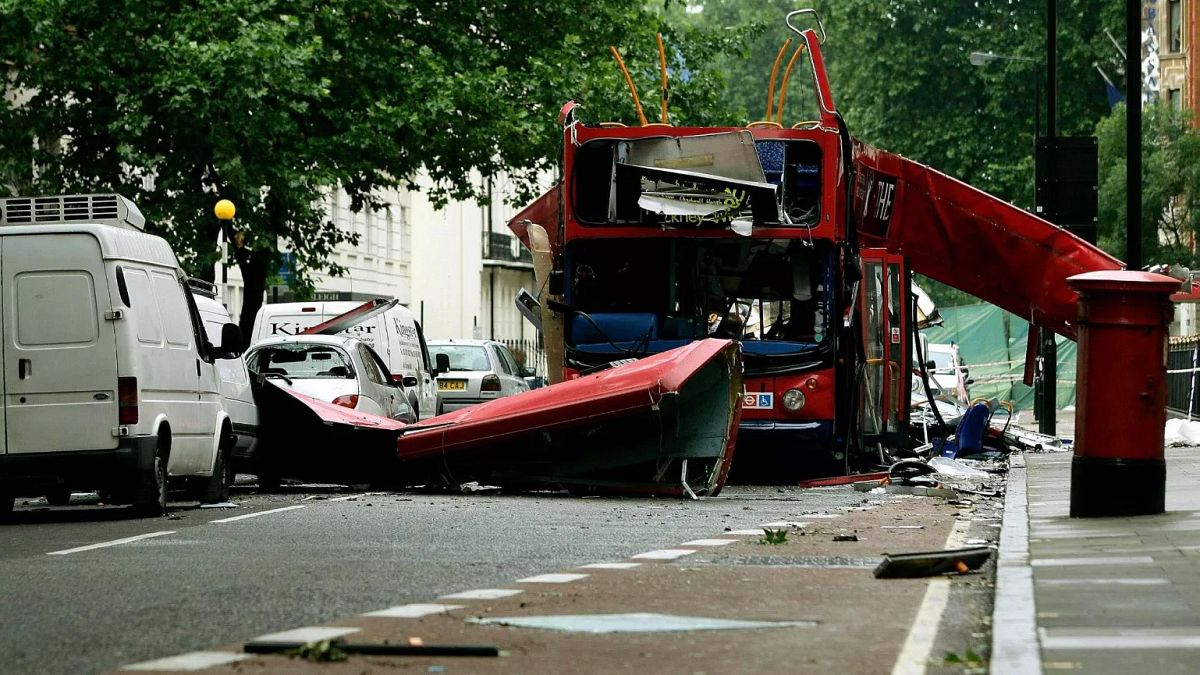Published on •Updated
London paused in remembrance on Monday to mark the 20th anniversary of the 7 July 2005 terror attacks, in which four suicide bombers killed 52 people and injured over 770 others during the morning rush hour in London.
The coordinated attacks — three on London Underground trains and one on a double-decker bus — remain the deadliest on British soil since the 1988 bombing of Pan Am Flight 103 near Lockerbie and the UK’s first instance of an Islamist extremist suicide attack.
Across the capital, moments of silence were observed, wreaths were laid and tributes were paid to the victims, survivors and emergency responders.
A ceremony at the Hyde Park memorial, where 52 steel columns stand in honour of each person killed, drew survivors, bereaved families and public officials.
At 8:50 am (9:50 am CEST) — the exact time the first bomb detonated — UK Prime Minister Keir Starmer and London Mayor Sadiq Khan placed wreaths at the monument.
Commuters and staff at stations affected by the blasts also joined in a minute’s silence.
Dan Biddle, who lost both legs in the attack near Edgware Road, reflected on the mix of grief and resilience the day evokes.
“You’re thankful you’ve survived it, you feel immense sadness and grief, but still this overwhelming sense of injustice,” he said, noting the lack of a full public inquiry.
He recalled how a fellow passenger, severely injured himself, crawled through the tunnel to administer lifesaving first aid, a memory he described as a “phenomenal act of bravery.”
At St Paul’s Cathedral, a service of commemoration echoed with prayers and music, honouring both those who were lost and the spirit of unity that followed.
King Charles III, in a message released for the anniversary, said his “heartfelt thoughts and special prayers remain with all those whose lives were forever changed on that terrible summer’s day.”
He praised the “extraordinary courage and compassion” shown by emergency workers and ordinary Londoners, calling on the country to “stand firm against those who would seek to divide us.”
Starmer added, “Those who tried to divide us failed. We stood together then, and we stand together now.”
UK Home Secretary Yvette Cooper called 7 July 2005 one of Britain’s “darkest days,” and warned that terrorism — particularly from Islamist extremists — continues to pose a grave threat.
She also pointed to emerging dangers from far-right extremism, hostile states and cyber threats, promising the government would “relentlessly confront and counter” them.
The attacks were carried out by four suicide bombers, three of whom were British-born sons of Pakistani immigrants, while the fourth was born in Jamaica.

